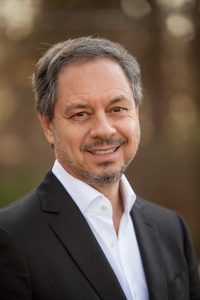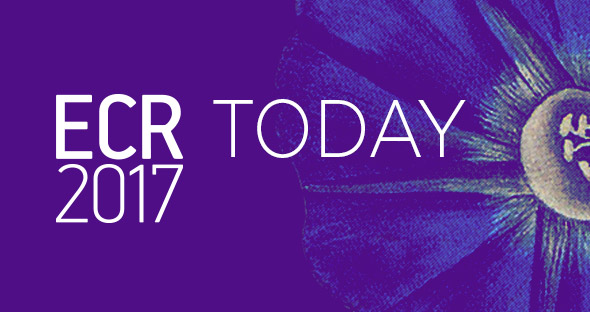Eminent neuroradiologist to give honorary lecture at ECR 2017
Watch this session on ECR Live: Thursday, March 2, 12:15–12:45, Room A
#ECR2017
In recognition of his significant impact on the field of neuroimaging and his service to organised radiology, Professor Mauricio Castillo from Chapel Hill, NC, United States, has been invited to deliver the Wilhelm Conrad Röntgen Honorary Lecture ‘Dissatisfaction, burnout and inequality: three major challenges in radiology’ at ECR 2017.

Professor Mauricio Castillo from Chapel Hill, United States, will deliver the Wilhelm Conrad Röntgen Honorary Lecture today at 12:15 in Room A.
Mauricio Castillo is the James H. Scatliff distinguished professor of radiology, chief and programme director of neuroradiology at the University of North Carolina in Chapel Hill. He is currently president of the American Roentgen Ray Society.
Originally from Guatemala, Prof. Castillo completed his radiology and neuroradiology training at the University of Miami School of Medicine, Jackson Memorial Medical Center, and Emory University School of Medicine, Affiliated Hospitals in Atlanta respectively.
His specialty and subspecialty choice was in large part motivated by his mentors.
“When I was a medical student, I was fortunate to work in the only teaching hospital that had a CT scanner and two board-certified radiologists. I was very impressed by the impact of imaging in patient care and by the way these two professionals used their large base of knowledge of medicine to generate a differential diagnosis based on imaging findings. Later on, while I was a resident, I developed a close relationship with Dr. Robert Quencer, which led me to become a neuroradiologist. One should never underestimate the influence we may have on our trainees and the influence our mentors have had on us,” he said.
Prof. Castillo’s research interests include paediatric neuroimaging, application of new imaging techniques and medical literature editing.
He has authored more than 640 articles and 27 books including the famous Neuroradiology Companion, a reference work covering the fundamentals of neuroradiology for residents, fellows and practitioners, now in its fifth edition.
Today Prof. Castillo continues to work in clinical research with innovative techniques, especially MRI.
“My interests continue to focus on the clinical utility of new imaging techniques, especially MRI sequences. In our division, research is divided into clinical and basic. I am no longer involved in the basic part, as this area now belongs to the Biomedical Imaging Research Center,” he said.
He has served as president of the American Society of Neuroradiology and is editor emeritus of the American Journal of Neuroradiology. He is a fellow of the American College of Radiology and a founding member of the American Society of Pediatric Neuroradiology (ASPNR), which he has also served as chair of the Research Committee and Education Committee.
As universal healthcare is expanding in the US, he predicts various changes in radiology practice in the years to come.
“I expect a reduction of the duration of our MRI examinations, as it happened with CT over the past 15 years, with the incorporation of new techniques such as synthetic imaging. Besides, I think our protocols will be refined to target specific populations and diagnoses in which benefits and outcome changes will be obvious. Over the next decade we will also probably witness the development of new MRI contrast agents following the controversies surrounding the gadolinium-based ones, and the continued growth of molecular imaging in cancer and neurodegenerative disorders,” he said.
Prof. Castillo has delivered more than 1,000 invited lectures all over the world but has never attended the ECR before.
“I am looking forward to building some very nice relationships in March,” he said.
Thursday, March 2, 12:15–12:45, Room A
Wilhelm Conrad Röntgen Honorary Lecture
Dissatisfaction, burnout and inequality: three major challenges in radiology
Mauricio Castillo; Chapel Hill, NC/US


